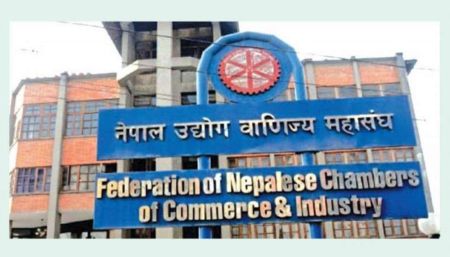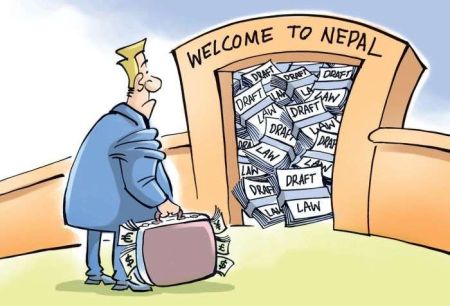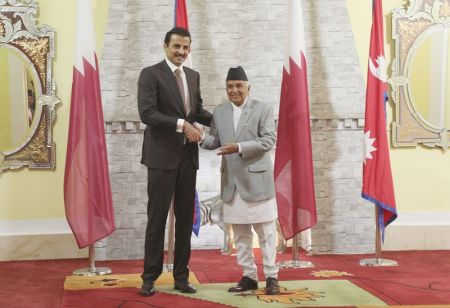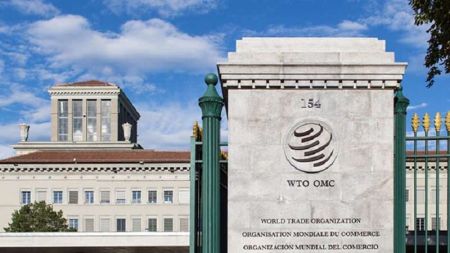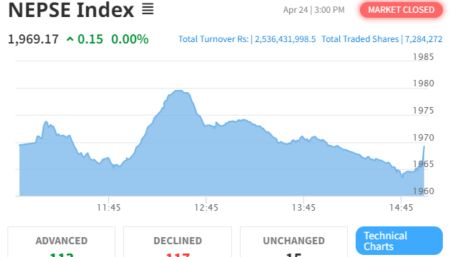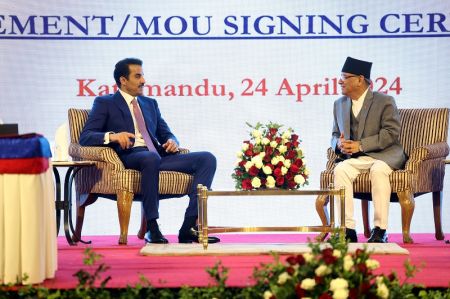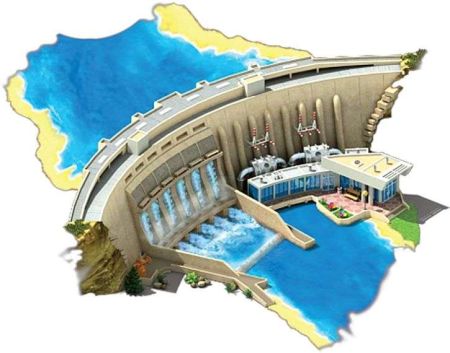With the latest managerial principles and techniques, focusing especially on financial issues, MFC enables students to tackle the challenges of contemporary business trends.
--BY KRISHANA PRASAIN
Financial control is the heart of any organization because it ensures financial discipline, coordinates activities, ensures a fair return, helps in the optimum utilisation of available resources and balances credit worthiness to achieve the objectives. With the increasing business activities, different universities are introducing various management courses as per the need and demand of time. The Master of Finance and Control (MFC) programme introduced by the School of Management, Tribhuvan University (SOMTU) in 2071 BS is one such course.
“MFC provides the students with conceptual and analytical skills of financial decision-making,” says Prof Dr Dilli Raj Sharma, Dean of TU's Faculty of Management. Explaining the significance of the MFC programme, Sharma shares that the course helps the students to specialize in the field of finance and control, including contemporary financial and control approaches.
The major objective of the programme is to produce skilled human resources having the knowledge of controlling and resolving financial problems. “We aim to provide finance leaders with global perspectives for the development of the financial sector,” says Sharma.
“We introduced the programme considering the market demand,” says Jeetendra Dangol, Associate Professor and Deputy Director of SOMTU. He adds that the course has multi-sectoral scope as every organization - from micro enterprises to big organizations - has the accounts and finance department. “After completing this course, the students will be able to handle the tasks such as financial planning, business expansion and financial statement analysis for loan,” he says.
Asked about the difference between the MBA in Finance programme of Pokhara University and MFC, Dangol says that MFC focuses more on the accounting part including finance. “We have found that chartered accountants are working as finance managers. We hope to replace them with our MFC graduates,” he says.
Sanjeev Khadka, a first batch graduate from SOMTU, says that the programme is effective as it covers almost all aspects of finance. “The best part of doing MFC is that lecturers from the related field provide knowledge according to the subjects,” says Khadka who is working as an Associate Research Officer in NIC Asia Capital. He says the market demand of MFC is high as he was offered a job by many other renowned companies before he joined NIC.
The Course
The MFC course was designed focusing on accounting and finance where accounting makes the control part and finance the planning part. “We designed the course considering the lack of the control part in the market," explains Dangol.
“Academically, the MFC course is a bit difficult than MBA as students have to study econometrics, financial economics and planning. Also, the students are required to do the graduate recruitment programme (GRP),” he informs.
Similarly, Sharma points out that MFC is a dynamic management course due to the adaptation of contemporary financial activities. “We will be updating our syllabus timely to have knowledge on the ongoing business environment so that our students acquire enough knowledge of the current business scenario,” says Sharma.
The two-year full time programme is divided into four semesters. Students are taught Business Communication, Business Communication Practicum, Financial Management, Managerial and Financial Economics, Financial Reporting and Control and Statistics and Quantitative Techniques for Business in the first semester. Similarly, the second semester includes Research Methodology, Financial Regulatory Systems, Seminar on Emerging Concepts in Finance, Organizational Behaviour and Human Resource Management, Accounting for Managerial Decision, Management and Financial Information System and Investment Management. In the third semester, students are required to study Insurance and Risk Management, Business Environment and Strategic Management, Corporate and Multinational Finance, Commercial Banking Operations, Elective I and also internship. Last but not the least, the fourth semester includes courses such as Corporate Auditing and Tax Planning, Financial Services Marketing, Financial Econometrics, Project Analysis Practicum, Elective II and Graduate Research Project.
Elective courses includes subjects such as Advanced Finance Theory, Behavioural Finance, Corporate Mergers and Acquisitions, Cooperative Management, Financial Derivatives and Risk Management, Financial Services and Wealth Management, Micro Finance and Entrepreneurship, Mutual Funds and Alternative Investments and Real Estate Investment Management.

Scope
As the MFC programme broadens the students' knowledge in finance and control, they are prepared to cope up with the different challenges by using the tools and techniques they learn during their study. MFC graduates after the completion of the course will be able to work as securities analysts, auditors, budget analysts, corporate analysts, marketing managers, risk analysts, operations managers, accountants, money managers, revenue agents and tax advisors.
Similarly, the students can enter various sectors such as banking and finance, equity research, insurance management, leasing, merchant banking, insurance industry, mutual funds, portfolio management, project appraisal, risk management etc.
According to Dangol, MFC graduates from SOMTU are working in the capital market, commercial banks and other service sectors.
Admission Criteria
Students from any faculty willing to pursue MFC need to have a minimum CGPA of 2.0 or 45 percent in their bachelor’s degree to apply for the course. The college takes a written entrance exam conducted on the GMAT format, besides an interview. The college takes admissions once a year in the spring.
SOMTU accepted 35 students in each of the previous two intakes. However, the college this year accepted only 20 students. “We are focusing on quality education and that is why we decreased the number of students in this year's intake,” explains Dangol. The college is planning to enroll 20 students in next intake as well.
Scholarships
The college provides a scholarship of Rs 10,000 to the students obtaining a CGPA of more than 3.7 in any semester.
Fee Structure
The whole programme costs around Rs 350,000 plus Rs 10,000 for GRP. The students are provided a set of books in each semester by the college. Similarly, the college takes the students on socio-economic tours where they only have to pay for the food. Also, the college brings a number of guest lecturers and distributes handouts to the students.
“Our objective is to facilitate the students to the extent possible and return their investment in direct or indirect way as we are not here for making profit,” claims Dangol.
Class Hours
Since MFC is a full time course, the students need to focus more on their studies. Classes are held from 7am to 5pm through Sunday to Friday at SOMTU located at Kirtipur.






